Seven new Gillings Innovation Labs will tackle COVID-19
July 6, 2020
Exactly how does coronavirus spread in the air? What will get kids’ vaccinations back on track across the United States? How can public health practitioners work with church communities to spread accurate information about COVID-19?
These are just three of the questions being explored by UNC Gillings School of Global Public Health researchers and their collaborators who have been awarded funding through the special COVID-19 round of Gillings Innovation Laboratory awards (GILs).
The GILs are innovative research projects, interdisciplinary across the School and beyond, that strive to achieve breakthroughs in urgent public health issues. By definition, GILs are well-suited to accelerate understanding and solutions related to the COVID-19 pandemic — and all seven of the projects funded for 2020 do just that.
Gillings School awardees include Karsten Baumann, PhD, assistant professor of environmental sciences and engineering; Noel Brewer, PhD, professor of health behavior and member of UNC’s Lineberger Comprehensive Cancer Center (LCCC); Lori Carter-Edwards, PhD, associate professor of public health leadership and adjunct associate professor of both health behavior and epidemiology; Audrey Pettifor, PhD, professor of epidemiology and faculty fellow at the Carolina Population Center (CPC); Kimberly Powers, PhD, associate professor of epidemiology; Whitney R. Robinson, PhD, associate professor of epidemiology, co-leader of UNC’s Social Epidemiology Program, member of the LCCC and fellow at the CPC; and Jim Thomas, PhD, associate professor of epidemiology and director of the Measure Program at the CPC.
The GIL awards offer faculty members support to advance early-stage innovations and implement proven solutions into practice across local and global communities. The awards are administered by Research, Innovation and Global Solutions, the Gillings School unit that manages programs funded by the $50 million Gillings gift.
Forty-one teams submitted proposals for consideration this year — the most ever received, with each department at the Gillings School represented. Reviewers across the University considered a number of factors, including the proposals’ innovation, potential for significant public health impact, scientific rigor, and capacity for rapid or broad translation of the results into practice.
The seven awardees will approach the pandemic through a breadth of public health strategies, including policy-based efforts, local and global work, and community-engaged methods. The rigorous science behind these projects aligns with efforts in progress at the N.C. Collaboratory and other UNC schools — and the winning proposals all include health equity as an integral part of their approach.

Dr. Karsten Baumann
One project, led by Baumann, will test how long airborne particles (expelled by talking, breathing and coughing) remain in the air, and how long SARS-CoV-2 contained in such particles remains infectious.

Dr. Noel Brewer
Brewer will lead a response to the fact that COVID-19 has forced an end to most preventive health care visits, causing a related drop in childhood and adolescent vaccinations. His team will seek new vaccination opportunities and create a toolkit for providers with insights specific to pediatric telemedicine.
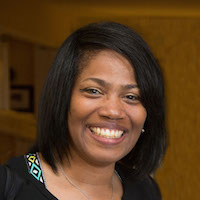
Dr. Lori Carter-Edwards
Carter-Edwards will work with colleagues at the Word Tabernacle Church, the North Carolina Department of Health and Human Services (NCDHHS), the N.C. Office of Minority Health and Health Disparities, and UNC’s Department of Social Medicine to leverage rural, Black, faith-based social connections to spread critical COVID-19 information now and study the method’s effectiveness for use in future public pandemics.
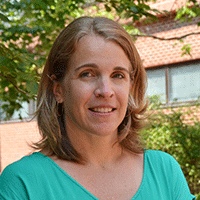
Dr. Audrey Pettifor
Pettifor will lead an initiative with collaborators at the University of the Witwatersrand and the National Institute for Infectious Diseases in South Africa, as well as UNC’s Department of Infectious Diseases, to learn more about risk factors for COVID-19 in rural South Africa and to apply that knowledge to strengthen the pandemic response in various low-resource settings.
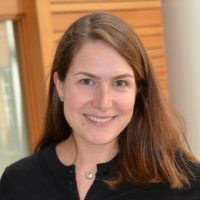
Dr. Kimberly Powers
Powers will collaborate with researchers in UNC’s Department of Infectious Diseases and Department of Microbiology and Immunology to study SARS-CoV-2 infection patterns within households. The core question is: “Most people take precautions when they leave home, but how exactly is the virus transmitted between people when they’re at home?”
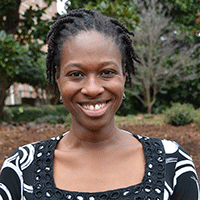
Dr. Whitney Robinson
Robinson will work with the NCDHHS and UNC’s Department of Infectious Diseases and Department of Laboratory Medicine in an effort to use antenatal care visits to estimate the population-level prevalence of COVID-19 immune response among a racially, ethnically and socioeconomically diverse sample of reproductive-aged women in central N.C.

Dr. James Thomas
Thomas will share consensus documents from the Centers for Disease Control and Prevention, World Health Organization and several universities via a Pandemic Ethics Dashboard. The timely documents, which were developed in preparation for an influenza pandemic, will guide policymakers and administrators in approaching 18 ethical issues commonly encountered during a pandemic. (A beta version of the dashboard already exists and will now be transformed into a global resource with increased functionality.)
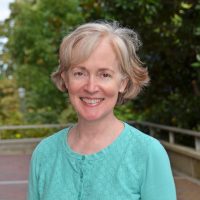
Julie MacMillan
“At the Gillings School, health equity is at the heart of our mission ‘to improve public health, promote individual well-being and eliminate health inequities across North Carolina and around the world,’” said Julie MacMillan, MPH, managing director of Research, Innovation and Global Solutions. “We selected these GIL projects with a bright light on whether their objectives, if successful, would reduce health disparities. Otherwise, why bother? If the virus’ impact is disproportionately hurting disadvantaged populations, then we must accelerate public health’s best solutions. Every funded GIL team felt strongly about that.”
The Center for Environmental Health and Susceptibility is co-funding the Baumann GIL; Lineberger Comprehensive Cancer Center is co-funding the Brewer GIL; and the Institute for Environmental Health Solutions is co-funding the Carter-Edwards GIL.
Contact the UNC Gillings School of Global Public Health communications team at sphcomm@unc.edu.
